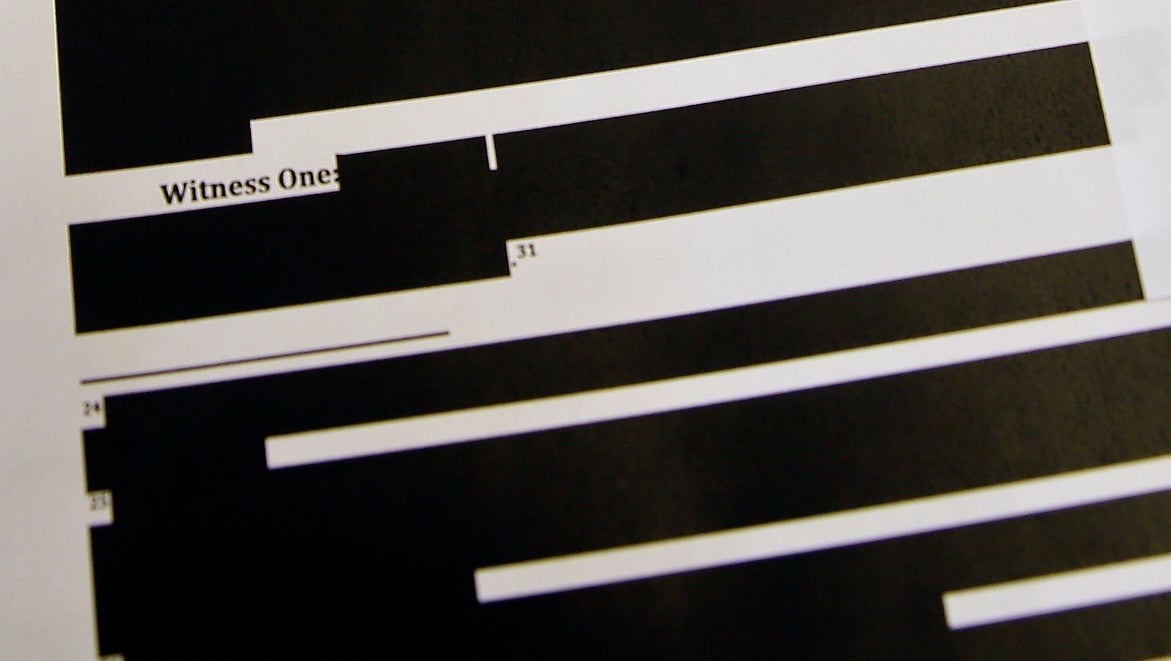The US government has never been more secretive than it is right now
The Trump administration is the least transparent in American history, releasing censored files—or none at all—in response to 78% of Freedom of Information Act (FOIA) requests last year, according to a data analysis by the Associated Press.


The Trump administration is the least transparent in American history, releasing censored files—or none at all—in response to 78% of Freedom of Information Act (FOIA) requests last year, according to a data analysis by the Associated Press.
The US government spent approximately $41 million on legal fees in 2018 defending its decisions to withhold requested documents, also a modern record.
During a House Oversight Committee hearing today (March 13), chairman Elijah Cummings, the Maryland Democrat, said the Justice Department—responsible for overseeing FOIA compliance across the executive branch—essentially views requests as “obstructions.” The Environmental Protection Agency (EPA) has deliberately delayed FOIA requests and referred “politically charged” inquiries to political appointees for review, Cummings asserted.
The Interior Department proactively disclosed 58% less data than it did during 2016, the last full year of the Obama administration, he said, adding that acting interior secretary David Bernhardt does not post an accurate account of his daily schedule to the department’s website. A Sept. 22, 2017 meeting that appeared on Bernhardt’s public schedule read “Meeting to discuss energy issues,” Cummings said. No attendees were listed. According to Cummings, CNN reported that department visitor logs show Bernhardt met with Jack Gerard, then-CEO of the American Petroleum Institute, an industry trade group.
Backlogs on top of backlogs
The government’s longest-pending FOIA request dates back a quarter century. Backlogs continue to grow. Melanie Ann Pustay, director of the Justice Department’s Office of Information Policy, told the committee the federal government received roughly 820,000 FOIA requests in 2017, about 40,000 more than the then-record it received in 2016. That number, rising steadily since 2009, Pustay said, is expected to go up again this year.
Rachel Spector, acting deputy FOIA chief for the Interior Department, told the committee that requests have gone up 30% overall since 2016, adding that the Office of the Secretary has experienced a 210% increase.
The EPA’s FOIA chief, Timothy Epp, said the agency received 1,115 more FOIA requests in 2017 and 961 more FOIA requests in 2018 than it did in 2016, with 2,761 currently backlogged.
Committee member Jim Jordan, the Ohio Republican, argued that the Obama administration had had “several” notable FOIA-related problems and “struggled with compliance.” The unprecedented number of FOIA requests the Trump administration is dealing with are a result of activities by anti-Trump activists, he said.
The flood of requesters, Jordan claimed, are being “paid by the Tom Steyers of the world to harass the executive branch,” now that it is in Republican hands. (Tom Steyer is a billionaire Democratic activist who supports impeaching Donald Trump.) And fellow Republican Clay Higgins of Louisiana blamed an “organized movement to obstruct and resist” the Trump administration. “Americans I have spoken to look at FOIA as a legitimate tool that has perhaps been weaponized against our current executive,” he said.
In fact, Pustay replied, the FOIA increase can primarily be attributed to increased engagement between government and the citizenry.
“Clearly doing worse”
Things weren’t perfect under Barack Obama. In 2016, FOIA requesters received censored files or nothing 77% of the time. In the first full year Obama was in office, that figure was 65%.
Although the percentages may look similar, John Wonderlich, executive director of the Sunlight Foundation, a public-interest group in Washington, DC, told Quartz the Trump administration is “clearly doing worse.”
Trump’s refusal to release his personal tax returns, his hostility toward the press, and the disappearance of information and resources pertaining to climate change, LGBTQ issues, and the Affordable Care Act from federal websites indicated a “general disdain for disclosure and the role the public plays in holding government accountable,” Wonderlich said.
Nate Jones, FOIA director of the National Security Archive, a nonprofit run by George Washington University, said, “There is bad news and a silver lining of good news” in what came out of the hearing: “The bad news is that the oldest request in government is almost 25 years old, backlogs continue to grow, and it’s not rare for agencies to take more than a year to process requests. The good news is that at the hearing today it appears representatives have zeroed in on the reason for these failings.”